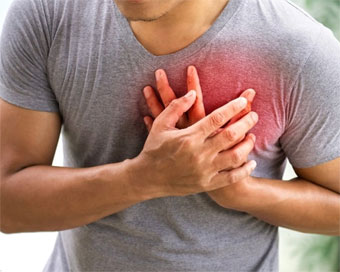| April 7, 2022 | IANS - New Delhi |

Everything in the twenty-first century is easy-access; whether it's the next show tickets or a place to crash for a weekend getaway. However, with the ease of information comes something even scarier, radiation! which we had no idea we were inadvertently ingesting. But somehow, we know that blue light can cause damage to our eyes and weaken our retinas, so imagine the amount of damage it can do to our skin. It can be really frightening!
We are surrounded by electronic devices such as mobile phones, computers, and laptops that emit radiation. But do we know what radiation is exactly? and what kind of damage it does do to the skin?
The cell phone you're using right now, or the laptop you're reading this article from, all have one thing in common, antennas. The antennas are chipped in to make a connection with the signal tower. These antennas as a form of connection emit radiation that harms our skin with time.
We all know, as informative as the digital world can be but there are times when it can be overwhelming us with misleading information. Namrata Bajaj, Co-founder, of Tatsa - Skincare made Simple helps us deep dive into the harms of radiation to our skin and how to protect it.
Skin discolouration: All electronic devices have one thing in common, and that is the harmful radiation effect on the skin. Skin damage is a major phenomenon nowadays, radiation penetrating the skin causes itchiness, and dryness leading to skin discolouration by turning red or dark.
Premature ageing: Given our current lifestyle of being around electronic devices all the time, our skin cycle is heading in the wrong direction. Radiations emitted from devices or the sun create tanning beds on our skin. Overexposure to UV rays harms the inner layer of tissues by making them lose their elasticity. Hence radiation leads us to premature ageing and such side effects.
The breakouts: When our skin dislikes the environment around us, it showcases the same in different ways. Breakouts are one of the common problems noticed due to the environment. The skin loses its guards or becomes more sensitive, which eventually manifests itself in the form of breakouts.
Skin pigmentation: Considering all of the skin damage caused by radiation and blue lights, skin pigmentation is one of the worst and possibly the most irritating skin conditions one adopts via radiation. As much as we want to avoid it, there is no escape, skin pigmentation is a condition where skin adopts darkening spots around the area.
Skin sensitivity: As we age, skin sensitivity is one of the most significant factors that directly affect our skin and cause permanent damage to it, whether we get redness easily or dry skin all over it. Skin sensitivity weakens the strength of your skin, the more sensitive the skin, the less likely the skin is to fight against the harmful particles of the air. This is where the radiation enters the picture by weakening the skin to the point where it can no longer bear anything.
Dark circles: Imagine the entire face is flawless and the red bags around the eyes sit rent-free! If you ask us, it's time to act upon the skin damage. No amount of good skin can cover the weightage of the heavy dark circles.
Namrata also suggests solution to protect our skin from radiation:
. Allow your skin to absorb more than just radiation by getting out in the fresh air and allowing it to heal in nature.
. There is nothing like drinking too much water; the more you drink, the more your skin will thank you. So, drink water and shield yourself from radiation with water.
. Wash your face on a regular basis, and make sure your eyes are getting enough water so the harmful radiation is washed away with each splash.
. Use a radiation protection face cream as your daily moisturiser to protect you from all types of radiation.
. Lower down your screen timings. And don't use your phone during bedtime.
(N. Lothungbeni Humtsoe can be contacted at lothungbeni.h@ians.in)
Tweet












